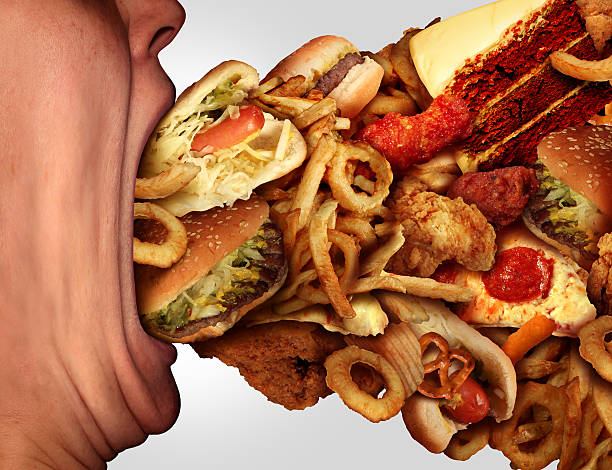When you consume too much food, your digestive system will need to work harder. The temptation to overindulge is all around us, from the fridge filled with leftover desserts to the mid-day cravings you get in the workplace when you see your coworkers bingeing on two large boxes of pizza, and the late night snack you and your partner share while watching Netflix.
Typically we associate overeating with junk food, but even foods that aren’t necessarily bad for you can be the cause of your indulgence. Eating too much depends on a few crucial details like your age, body composition, height, how much movement or activity you do in a day, medical condition, sleep patterns and so on.
You’ll know when you’ve overeaten because your body will give you subtle signs. For example, you might notice that you need to loosen your pants or that you experienced a hot flash while biting on a food that isn’t spicy.
Overeating happens, and although you might be happy with the satiety you experienced, doing this frequently can do some serious damage to your body.
1. It can cause blood sugar levels to go up because your body needs to overcompensate and as a result it produces more insulin than usual. You’ll experience headaches, fatigue, increased thirst and lethargy.
2. It can cause your stomach to bloat, and you’ll have to deal with nausea, acid reflux and discomfort.
3. Eating too much leads to excess body fat. When you consume more calories than you expend, you get a calorie surplus. The more surplus you have, the more excess fat your body will have. That said, consuming a lot of protein is unlikely to increase body fat unless if it’s filled with fat such as fried chicken.
4. It may disrupt the balance needed in hunger regulation. Ghrelin is the hormone that tells your brain you’re hungry, while leptin is the hormone that tells it you’re full. When you overconsume foods high in salt, sugar or fat, dopamine is released activating pleasure centers in the brain encouraging you to eat for enjoyment instead of to prevent hunger resulting in a continuing cycle of overeating.
5. Overeating can increase your risk for diseases like metabolic syndrome, heart disease, diabetes and stroke due to the high levels of fat in your body.
6. When you overeat, your body is unable to break down food as efficiently as usual and this affects brain functionality, leading to changes in sleep pattern.
7. Consuming a lot of foods that are rich in sugar and fats could also affect cognitive function. Pigging out in Old Country buffet every once in a while probably won’t cause health problems but chronic overeating will lead to impaired judgement and memory loss.
How to Avoid Overeating
First things first, if you have been overeating for quite some time now, don’t dwell so much in the past and instead move forward. Blaming yourself for what you’ve done won’t turn back the time. The best thing you can do is to focus on the change you want to achieve. Start incorporating healthy fiber and protein rich meals into your diet.
The next thing you should do is to make sure you drink at least 6-8 glasses of water everyday. Sufficient water intake is important in order for your body to be properly hydrated as it helps aid in digestion and at the same time, detoxify and cleanse your body.
Engaging in physical activity is also a must. Overeating is basically consuming more calories than what your body needs. But if you burn more calories in the gym, you can slowly but surely utilize the energy stores in your body. Over time, you will lose excess weight.
Finally, manage your stress. In many cases, people overeat because they are under a lot of stress. Take steps to budget your time, keep your emotions in check, find some distractions every now and then, and let go of what you can’t control.
